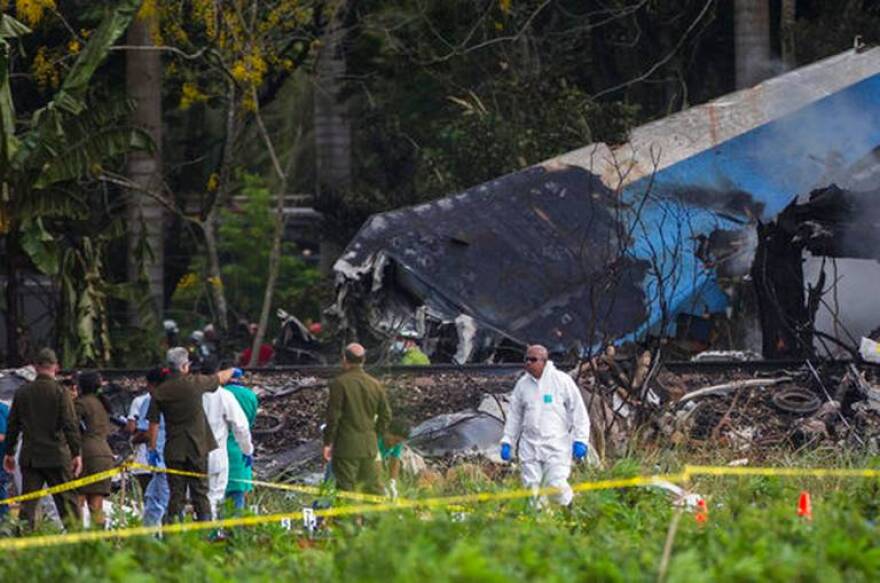Cuban officials are still identifying the 111 people who died in last Friday’s crash of a Cubana Airlines 737 on takeoff from Havana. Two surviving passengers remain in critical condition. Some Cubans here hope the tragedy will bring changes to how Cuba – and the U.S. – approach air travel on the island.
Cuban aviation officials have yet to determine the cause of last week’s crash of the Cubana flight from Havana to Holguín in eastern Cuba. But there is a growing consensus that communist Cuba’s state-run airline industry is in crisis.
The 737 jetliner that crashed – which Cubana had leased from a Mexican company – was almost 40 years old. That also raises concerns about the safety of Cuban-Americans – and a growing number of U.S. tourists – who sometimes take domestic flights while visiting Cuba.
“I haven’t flown Cubana because I’m not familiar with it and I’m not familiar with who they lease their planes from," says Elena Freyre, a Miami Cuban-American who was in Cuba last week when the crash occurred. "We made the decision to [travel inside Cuba] by bus.”
Freyre, who heads the business consulting firm A La Cuba Inc. as well as the Foundation for Normalization of U.S.-Cuba Relations, took a U.S. flight last week from Miami to Holguín, Cuba, to visit friends. That's a reflection of how U.S. airline service to numerous Cuban cities other than Havana has grown since the U.S. and Cuba normalized relations four years ago.
When the Cubana flight from Havana to Holguín crashed, Freyre was on a bus from Holguín to Havana.
Many aviation experts consider Cubana a poorly run airline today. But Freyre is among many Cuban-Americans who say an equally large factor is that the U.S. needs to drop the part of its trade embargo against Cuba that prevents Cubana from leasing U.S. planes and parts.
“The main problem is that it would be so simple for Cubana to lease some planes from the U.S.," says Freyre, who is now back home in Coral Gables. "But they can’t."
“If we’re talking about protecting the Cuban people," she adds, "this is a very obvious way of protecting the Cuban people – and U.S. tourists."
The Trump Administration, however, is unlikely to drop that embargo restriction.






